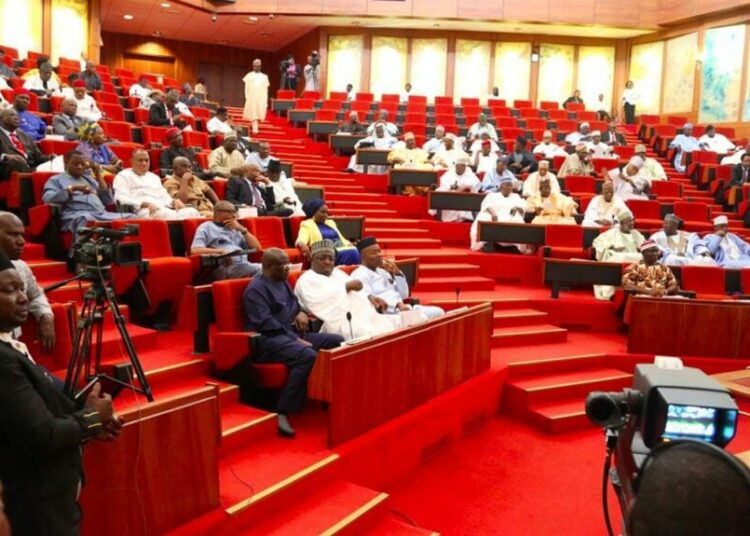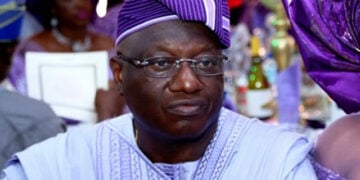The Senate, on Thursday, stood down further consideration of a Bill for an Act to repeal the Electoral Act No 13,2 022 and enact the Electoral Act, 2025.
This followed the adoption of a motion moved by Majority Leader of the Senate, Senator Opeyemi Bamidele (APC, Ekiti Central) and seconded by Minority Leader, Senator Abba Moro (PDP, Benue) at plenary on Thursday.
Senator Bamidele said he believed the time was not auspicious for the Senate to go into executive session to discuss the Bill.
He further said it was his conviction that there was the need for further consultation on the Bill before proceeding further.
According to him, there was a need for lawmakers to fully understand the general principles and details of the Bill, hence the
postponement of further consideration of the Bill to another legislative day.
Earlier, before the Bill was stood down, chairman, Senate Committee on INEC, Senator Simon Lalong (APC, Plateau), presented the general principles of the Bill, saying the proposed legislation was not a mere amendment, but a comprehensive reform by repealing the principal Act and enacting another law.
He said the bill was intended to provide Nigeria with a strong, more credible and more inclusive electoral framework.
Lalong said although the AEectoral Act 2022 delivered some landmark results, provided landmark innovations, it also exposed deep flaws in the nation’s electoral system.
This, he said, revolved around critical gaps, delays in the release of election funds, disputes over voter register, conflicting interpretations of result transmission and widespread litigation from party primaries, weak punishment of electoral offenses.
He said Nigerians expected the Senate to respond not with mere corrections but with a holistic law that restores faith in the nation’s elections going forward.
Lalong said the key objectives of the proposed legislation were to bring about improvement in the electoral process by ensuring transparency, efficiency, and integrity of the electoral system.
He also said the objective was to ensure that there is free and fair competition where all political parties are given equal rights and to ensure that the outcomes of elections reflect the will of the people and reduce electoral malpractices by setting stricter punitive measures.
This, he said, the punitive measures would serve as deterrence to electoral malpractices and ultimately enhance voters’ confidence and participation in elections.





